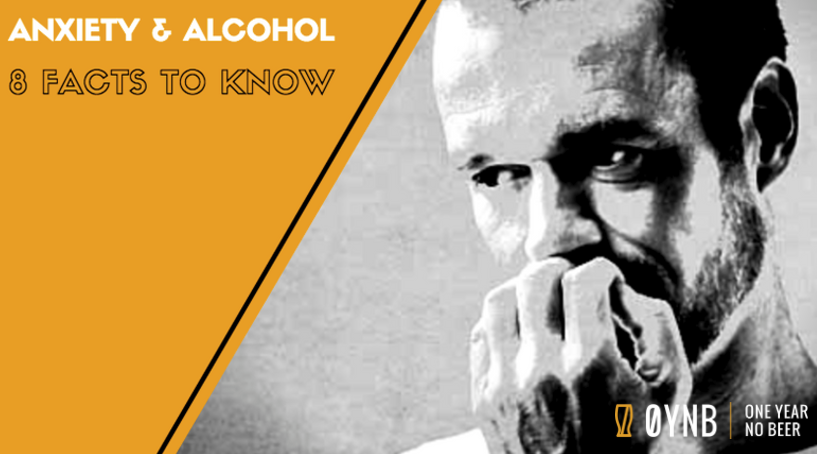Anxiety and alcohol: Looking at everything from alcohol induced anxiety to alcohol brain fog
Can alcohol cause anxiety?
In this blog post we help answer “can alcohol cause anxiety?” and take a close look at alcohol and mental health.
- Alcohol changes levels of serotonin and other neurotransmitters in the brain, which can worsen anxiety.
- You may feel more anxious after the alcohol wears off.
- Alcohol-induced anxiety can last for several hours, or even for an entire day after drinking.
Does alcohol help anxiety?
So does alcohol help with anxiety? Well Booze… friend or foe? For those with anxiety it is definitely a foe. While it may make you feel better in the moment, using alcohol to ease your anxiety will backfire in the long run. Yes alcohol can deliver a fleeting positive lift or ease of mood, but over hours its effect is negative; inducing anxiety, low mood and mental fog. Our brain, mind, body and emotions all function via a process of chemical interactions, and alcohol REALLY disrupts these.
In the long run booze can cause major problems to mental well-being, and lead to severe alcohol-anxiety, depression and suicidal feelings. Which is why the World Health Organisations (WHO) classify booze as a depressant.
Hardly the party-partner we have been led to believe in!
Anxiety & Alcohol – 8 Facts: the good, the bad & the ugly
The BAD
1. Alcohol reduces serotonin levels
Serotonin is one of our happy-chemicals and contributes to a pleasant all over feeling of well-being and contentment. Booze interferes with this and puts the fire out.
2. Alcohol increases anxiety and stress rather than reducing it
As your body processes alcohol the effects start wearing off – the buzz or the calming feeling fade and you begin to experience ‘withdrawal’. Not just physical hangover-stuff, but psychological unease such as agitation, unease and low mood.
3. Some Suffer More Than Others
Some hardly notice the agitation and anxiety that alcohol withdrawal creates. But if you have a tendency to anxiety, these feelings can be really intense.
4. Never-Ending-Cycle
Those with anxiety will often relax with a few alcoholic drinks. Initially, it soothes. But as it’s leaving your body the anxiety gets really bad again. So you want/need to drink again. Then you’re in a never-ending cycle. The very thing you believe is helping is actually causing it. You need to break from alcohol for some time at this point.
5. You Need More To Feel OK
The more you drink the higher your tolerance. So you need more to get that buzz or that calm. But, the withdrawal gets worse. So the cycle gets more intense. This is not good for you mental well being.
THE UGLY
6. The Cruel Twist – Messing With Your Happy Chemicals
Alcohol also increases the release of dopamine in your brain's ‘reward' center. By jacking up dopamine, alcohol tricks you into thinking that it's actually making you feel great and this effect keeps you drinking. But as this is happening, alcohol is altering other brain chemicals that drive feelings of depression and anxiety. Alcohol is such a cruel frenemy. It gives as it takes away.
The GOOD
7. Hangxiety
We now have a word for all this. More and more people are aware that rather than providing relief from anxiety, alcohol is making it worse. We've begun talking about it to each other and in the media. We are beginning ask ourselves ‘is it worth it? and ‘have we been conned'? Many decades ago smoking was viewed as sophisticated and advertising promoted it so. Then the medical-cancer-causing truth broke through and the social landscape today views smoking very differently. A similar shift is happening with alcohol now.
8. There Is A Cure – How to stop anxiety after drinking?
You maybe wondering how to stop anxiety after drinking? So let's take a look at how you can start improving your mental health.
If you experience alcohol-induced anxiety there is a brilliant cure available. Go alcohol-free. Symptoms usually subside once the cause (alcohol) is removed. Some people experience profound relief from anxiety after 3 or 4 days alcohol-free. For others it takes a little longer. But generally after 10 days to a fortnight incredible feelings of energy, well being and mental clarity have kicked in as your body’s natural brain and body chemistry finds it natural state.
Yes there will be a few challenging days between drinking and not drinking, and getting to that natural state of low anxiety and high levels of well being.
But it’s got to be worth it in the long run? You’ll only know if it works for you by giving it a try…

An entrepreneur and former senior oil broker, Ruari gave up drinking after excessive consumption almost cost him his marriage, and worse, his life. Going alcohol-free improved his relationships, career and energy levels, leading to him founding OYNB to provide a support network for others.









